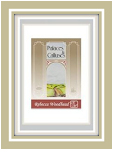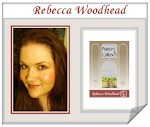People seem to fall into four groups about Twitter. Here’s a little quiz to see which group you fall into and how this could affect your career as a writer:
What Kind of Twitterer Are You?
1/ You are writing a book. You...
a/...send out tweets (messages) about your book constantly, set up a newsfeed from your blog and sign up to a number of automated programs that guarantee to drive traffic to your page, figuring it makes sense to get as many eyes on your book as possible.
b/... don’t tweet. Twitter is a fad. Twitter is full of airheaded wasters and you wouldn’t want them to buy your book anyway.
c/ ...get very confused. You want to make sure people know about your book but there’s just endless text on this Twitter-thing and you don’t know who anyone is or how to join the conversation – if it even is a conversation. Why can you only see part of what’s going on all the time anyhow?
d/...unfollow all the automated marketers immediately then scroll through your follower list picking out only the ones you like the look of before hacking away all the dead wood. You then follow the people you’re interested in and start finding out about them.
2/ A publisher starts to follow you. You...
a/ ...DM (direct message) them immediately with a summary of your book and links to your blogs; ask for their email address, offer your phone number and give them the best times to call. Write down a 21 day plan of action to get them to take you on – and possibly a campaign against them if this fails.
b/ ...know it’s a mistake as you don’t have a Twitter account, then wonder why anyone would want a publisher to follow them. If anyone asked your advice, you’d say:
‘publishers just want to see how inane you are before they reject you. Stay off Twitter and get on with your book.’
c/ ...think ‘OMG! What now? Do I DM, do I not DM? What’s the protocol? Aarrrgh!!’
d/ ...openly thank them for the follow. Follow them back. Look into the kinds of work they’re interested in and the people they currently represent. Join in with discussions about the publishing industry and let them know about developments you discover. Promote their authors in a non-spamming way (e.g. RT – retweet – news about award winners from their stable) and let other authors and readers know about them through #followfriday.
3/ You only have half an hour a day in which to tweet. You...
a/ ...see how many tweets you can put out with trending hashtags and your book in the same tweet. The more newsworthy the hashtag the better. It doesn’t matter if it’s relevant or not. Gotta push that book. Go through your followers and see the names of the followers of spammers and sex-workers. If people will follow them, they’ll follow anyone – why not you? Never take your eyes off that sale. It’s a numbers game. Visibility is power.
b/ ...think ‘If I were on Twitter, I wouldn’t waste thirty minutes a day on it. Do people not have lives?’
c/ ...wonder what you can do in only 30 minutes. You are paralysed with indecision and end up feeling like a failure before your day has even begun.
d/ ...scroll through your new followers - taking time to thank the new publishers, media people and celebrities following you. See if there are any conversations that are too important to leave for a day, and make a pithy contribution. If there aren’t any then put out a general update, witty quote or comment on a trending topic before getting on with the rest of your day.
Results
Mostly a – you’re a Web 1.0 Spammer
Back in the early days of the dot-com boom, a group of people rose up from the primordial ooze and began to spam. In the early days, spam was considered to be repeated mass-emailing of unwanted drivel about business opportunities, pharmaceutical products and ‘personal services.’ Today, people are so fed up with spam that spam-sensitivity is heightened. There are people on Twitter who will unfollow you for any amount of promotion. Promotion is not always spam - sometimes it’s Parma Ham or something equally delicious - but many people won’t stay around to find out, so promote elsewhere.
Twitter is a discussion place. It is a party. If you unendingly promote yourself on Twitter, you are like the annoying person at the party with all the business cards but no interest in anybody else. It is really good that you believe in yourself or your product so much but let your web site or blog do your promoting. Put a link in your Twitter bio to that site and people will go there if they want to know more.
If you write an interesting article, put up a link but be aware that publishing a feed of all your blog or site content is a bit of a no-no. Would you just put your 140 character tweets up on your blog? Of course not. It would make your blog followers feel ignored. Think carefully before you commit the same faux pas with your Twitter friends. They want to talk to you. Throw off your business hat, loosen your tie and have a chat. You might like it.
Mostly b – you’re a Twitterphobe
You hate Twitter. You haven’t been on it but the very thought of it takes your blood close to boiling point. Why ‘dumb-down’ society any further? Isn’t it stupid enough already? Why won’t people switch off their computers and start reading again?
I hear your fury. Find your neutral space – it will pass. Read ‘Twitter is as Twitter does’ by clicking the link at the bottom. It is fine to be selective about your Twitter friends. Sign up and look up people you’d really like to chat with. Which authors do you like? Why not talk to them? They may even talk back. You can stay up to date with the trends in the literary world and get as involved as you like.
It is fine to protect your updates and only communicate with your best friends if you like. You can use Twitter as a bookmarking device for the things and people you find most interesting. Alternatively, you can take part in literary conversations like #litchat, where readers share ideas in real time using the Twitter ‘hashtag’ search facility. If you need this further explained, come to http://twitter.com/rebeccawoodhead when you sign up and I’ll take you through it.
Mostly c – you’re a Bitter-Twitter
You want to get on board with the Twitter-thing but you just don’t get it. Maybe you were a little over-enthusiastic and followed hundreds of people and now you don’t know which conversations to follow or what to do. Take a step back. Look through your timeline and see which of your new chums are starting to annoy you. Unfollow them. This is important because some people are put off if they see you follow too many more people than follow you. Look at what’s left. If you were at a party, is this the kind of party you’d stay at? If not, look for people you’d like to talk to and invite them to your party until it is.
Terminology can be confusing. For instance ‘Bitter-Twitter’ would have made perfect sense a few months ago but now ‘Bitter-Twitterer’ or 'Bitter-Tweeter' makes more sense. People tend to ‘tweet’ rather than ‘twit’ now. They talk to ‘tweeps' rather than ‘tweeple’ and ask people to ‘tweet’ or ‘follow’ rather than ‘twitter’ them. The vocab changes all the time. Just throw yourself into it and eventually you’ll find a way to make yourself understood. Don’t panic!
Mostly d – congratulations, you’re a member of the Twitterati!
You’ve sussed out Twitter and are moving into the realms of the Twitterati, if you’re not already there. Celebrities, journalists and publishers contact you daily and your experience of Twitter is interesting and fun. You have followers at the top of their game in publishing and media; frequently find prize-winning authors on your follow list and are never short of an expert to DM about a writing issue. You take your work seriously but are not afraid to be silly when the party calls for it. Good work. Follow me any time!
Now you know the kind of twitterer that you are, you need to know what to do to enhance your Twitter experience. The guest blog is on The New Author. I've organised transport for you. Next stop: 'The New Rules for Literary-Twittery'. Jump on the Blog Tour Bus.....jpg)

What Kind Of Twitterer are You? – a Quiz for Writers
Read more...

.jpg)










.jpg)




